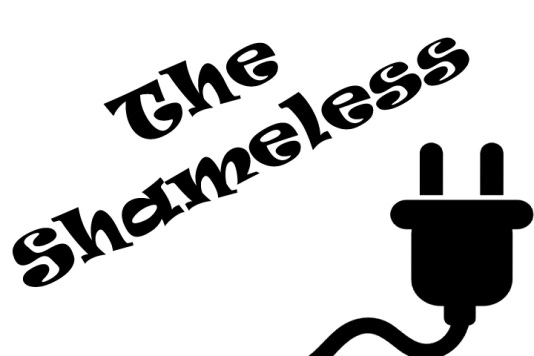Marion Hood was rejected for admission to Emory University only because he was “a member of the Negro race.”
Issue #267 American History February 28, 2023
Today is the last day of Black History Month, which started as “Negro History Week” in 1926 by Dr. Carter G. Woodson who believed that Negroes needed to learn about their own history and tell their own stories.
Here are some true stories that span much of American history that show that the more things change, the more they stay the same.
Rev. Thomas Pleasant Hilliard, my great-grandfather, circa 1880
Please make sure to see and act on the important information at the end of this article.
My paternal relatives are from Arkansas. The oldest ancestor we know about is my great-grandfather, Rev. Thomas Pleasant Hilliard, who was born about 1820. One of his sons, James Murray Hilliard, Sr., was my grandfather and a traveling chef on the railroad. He met and married my grandmother, Minnie Lee King in Arkansas. Together, they raised a large family in a house they owned in Fort Smith, Arkansas. My father, born in 1920, was the 12th of their 13 children. One of my father’s older brothers, child #10, Thomas Pleasant Hilliard, was stillborn.
When they were four years old, my father's identical twin died in 1924 when he stepped on a nail while playing outside, but emergency medical treatment was denied because he was Black. Two of my father's older sisters died of tuberculosis in the 1930s, again because medical treatment for Black people was inferior to that available for whites. Those experiences with his siblings led my father to become a virologist and an infectious diseases specialist in the 1940s like Dr. Anthony Fauci is now. My father wanted to be a doctor, but there were not enough medical school openings available for him at that time.
Another one of my father's older brothers was the principal of the segregated high school that he and his siblings attended. Almost all of the younger Hilliard siblings who were able to go to college had to leave Arkansas to do so.
In the early 1900s, my maternal grandparents moved from the cotton fields in Euphala, Alabama, to East Chicago, Indiana because my grandfather got a job in the nearby steel mills. They were part of the “Great Migration” of Black people from the openly segregated South to the not-so-openly segregated North.
In 1934, my mother's older sister was hit in the head with a basketball while in gym class. Today, her injury would be a minor concussion. However, none of the white hospitals in East Chicago would admit my aunt for treatment, and before my grandparents could get her about 30 miles away to a Black hospital in Chicago, she died. She was 13 and my grandparents' firstborn child. My mother was ten years old. This was "up north," where things were supposed to be "better."
My father and mother met in St. Louis while they were attending a segregated medical school. After they married, they were going to live in St. Louis, but my father could not get a job there because of his race. Yes, he was told that to his face.
They moved to Detroit because he got hired by the City of Detroit Health Department that, as his childhood friend from his hometown told him, was hiring "colored people." My three younger sisters and I were all born and raised in Detroit, a long way from segregated Arkansas.
How much has changed in Arkansas?
In January 2023, almost 100 years after my aunts and uncle were refused proper medical treatment because of their race, the newly inaugurated governor of Arkansas, Sarah Huckabee Sanders, declared that "CRT" would not be taught in Arkansas and that the term "LatinX" would not be used on any government documents. To far-right Republicans like Sanders, "CRT" means any history or negative events pertaining to Black History and/or makes white people "feel uncomfortable."
I wonder how "uncomfortable" my grandparents felt when their young children died because of racism.
On February 28, 1859, the Arkansas legislature passed a law that would have devastating consequences for many of its free black inhabitants. The law required any free black person living in Arkansas to either leave the state within 90 days or be re-enslaved. This was an especially harsh punishment because there were many blacks who had been born and raised in Arkansas as freedmen, meaning they had never actually been enslaved in that state.
This expulsion order was one of the harshest acts to be enacted against African Americans during the antebellum period. It was also one of the last gasps of desperate attempts by southern states to hold on to their institution of slavery before the Civil War began just two years later in 1861.
In response, many African Americans fled to nearby states with more lenient laws for free blacks. Others were able to find legal loopholes in the law that allowed them to remain in Arkansas.
I am not sure if my paternal great-grandfather was born free or enslaved in about 1820, but I do know that his family moved to Oklahoma for many years just before the Civil War before moving back to Arkansas.
The expulsion of free blacks from Arkansas was an example of the extreme lengths some states would go to ensure their continued control over slavery.
Meanwhile, in the latter half of the nineteenth century, many Black people free and enslaved, moved to California to live their lives with more freedom.
Richard Bowie Spikes (October 2, 1878 – January 22, 1963) was an African-American inventor born in San Francisco, California. The holder of a number of United States patents, his improvements on existing inventions included a beer tap, automobile directional signals, a safety braking system for trucks and buses, and an automatic gear shift device based on automatic transmission for automobiles and other motor vehicles. Spikes received the patent for his automatic gear shift on February 28, 1932.
Although a capable pianist and violinist, Richard Spikes learned to cut hair in his father's barber shop and then became a public school teacher in Beaumont, Texas.
Soon after his marriage, Spikes moved west to Albuquerque, New Mexico, and later Bisbee, Arizona, where he operated a barber shop and later a saloon. He became dissatisfied with how draft beer was dispensed from a keg; and developed variations on the pressure-dispense beer tap. The patent was purchased by the Milwaukee Brewing Company and variations of the invention are still in use.
Why is Black History Month still relevant? Let me count (some of) the ways:
Black men didn't gain citizenship until 1865, 76 years after the Constitution was made the law of the land.
Before and after the 13th Amendment, so many laws were passed to suppress Black people and other non-whites from learning to read, going to school, getting jobs, getting personal or business loans, living in certain areas, shopping in stores, going to public libraries or swimming in public pools, and so on.
Future astronaut Ronald McNair was thrown out of the public library in his hometown in South Carolina in 1959 when he tried to check out books. He died in the Challenger disaster in 1986. That library is now named after him.
The Chinese Exclusion Act was passed in 1882.
Entire prosperous Black business areas were bombed out of existence in several states for decades after Reconstruction.
Native Americans weren't granted citizenship until 1924.
Japanese Americans were incarcerated in concentration camps in 1942.
Non-white veterans were excluded from taking advantage of the educational and financial benefits of the "G.I. Bills" after World War II.
Schools were segregated and Black people and others either weren't admitted at all, or their numbers were severely limited and they had to sit in separate areas.
Black people were killed when they tried to vote, patronize certain shopping areas, or go to certain schools, including veterans of World Wars I & II.
Restrictive housing covenants existed to keep Black people and most other non-whites in certain poorer areas and unable to receive equal treatment and financial governmental help for their neighborhoods.
Thousands of Black people were lynched or otherwise murdered because they tried to exercise their right to vote, tried to attend segregated schools, or just tried to exist.
Those laws were "on the books" until the 1950s, 1960s, and 1970s. That is almost TWO HUNDRED YEARS of deliberate, legal, and systemic racism since 1789.
Today, laws are being passed by many Republican state legislators to roll back decades of voter rights.
Republican governors, legislatures, and school boards are restricting by legislation the teaching of Black History, calling it divisive and of "no educational value," and even going as far as saying that the only continents that "count" are Europe and North America (excluding Mexico, of course).
Republicans are also putting into place laws and regulations that discriminate against LGBTQA+ citizens, falsely claiming that drag show entertainers are pedophiles and "groomers," and trying to outlaw drag show actors.
Critical Race Theory is a set of scholarly treatises that examine the long-term and ongoing effects of systemic racism
Just as with the word "woke," racists in this country have co-opted the title "Critical Race Theory (CRT)" to mean anything and everything having to do with teaching the true and complete history of systemic racism in this country.
Actual Critical Race Theory critiques how the social construction of race and institutionalized racism perpetuate a racial caste system that relegates people of color to the bottom tiers. CRT also recognizes that race intersects with other identities, including sexuality, gender identity, and others.
CRT recognizes that it is the systemic nature of racism that bears primary responsibility for reproducing racial inequality.
CRT recognizes that racism is not just in the past. CRT acknowledges that the legacy of slavery, segregation, and the imposition of second-class citizenship on Black Americans and other people of color continues to infiltrate this nation.
CRT seeks to recognize the historical centrality and complicity of law in upholding white supremacy in the United States.
Most importantly, Critical Race Theory is studied only in law schools and some PhD-level graduate programs. It is not taught in master's degree programs, in undergrad programs, and certainly not in K-12.
However, systemic racism still influences public and private education in the United States.
According to the American Bar Association: the limitations of legal interventions have led to current manifestations of racial inequality in education, including:
The predominance of curriculum that excludes the history and lived experiences of Americans of color and imposes a dominant white narrative of history.
Deficit-oriented instruction that characterizes students of color as in need of remediation.
Narrow assessments, the results of which are used to confirm narratives about the ineducability of children of color.
School discipline policies that disproportionately impact students of color and compromise their educational outcomes (such as dress code policies prohibiting natural Black hairstyles).
School funding inequities, including the persistent underfunding of property-poor districts, many of which are composed primarily of children of color; and
The persistence of racially segregated education.
Marion Hood, after being rejected from Emory University, gathered his $5 and went on to graduate studies at Howard University before attending medical school at Loyola University in Chicago. Then he returned to Atlanta to establish himself as a respected gynecologist and obstetrician, retiring in 2008.
Sixty years later, during a Juneteenth celebration, Emory University apologized to Dr. Hood for rejecting his application because he was Black in 1959.
What are your thoughts about systemic racism and the efforts to whitewash/eliminate Black History by calling it “CRT?”
Let us know in the comments or start a dialogue in the chat (for paid subscribers).
No intrusive ads or annoying popups ever! Instead, please see the important information below and at the bottom of this post. That’s how we grow and sustain this publication. AND, please keep those “Likes” and comments coming! Thanks!
There is new lower pricing for the paid levels at as little as $5.00/month or $50/year!
Help us to grow our We Are Speaking Substack!
Don’t Forget! If you have the W.A.S. app for iOS and Android, you can listen to each article by clicking the little headset icon. You can also participate in the W.A.S. Chat (for paid subscribers only).
There are many benefits to using the W.A.S. app, including the ability to listen to our posts and podcast episodes straight from the iOS or Android app.
You can always leave any questions in the comments or email us.
Free posts are available for 7 days after publication. Adjust or upgrade your subscription to the paid level here. Pay less than 14¢ per post for the 36 monthly articles and podcast episodes. Thank you for your financial support!
Read the award-winning Detroit Stories Quarterly SciFi Anthology by Keith Owens, et al., with special guest authors. Click before to get a copy.
Our new eBook for independent authors and creative and solo professionals is published! Are you a creative professional or independent author looking to market and brand yourself successfully? Then this is the book for you! Learn practical and targeted marketing and branding strategies that will help you stand out from the competition. Click below to get your copy for just $4.99.
Check out the Global Creative Community Branding and Marketing Academy (GCC BMA) offering online courses networking opportunities, and one-on-one and group coaching for independent writers and creative and solo professionals.












